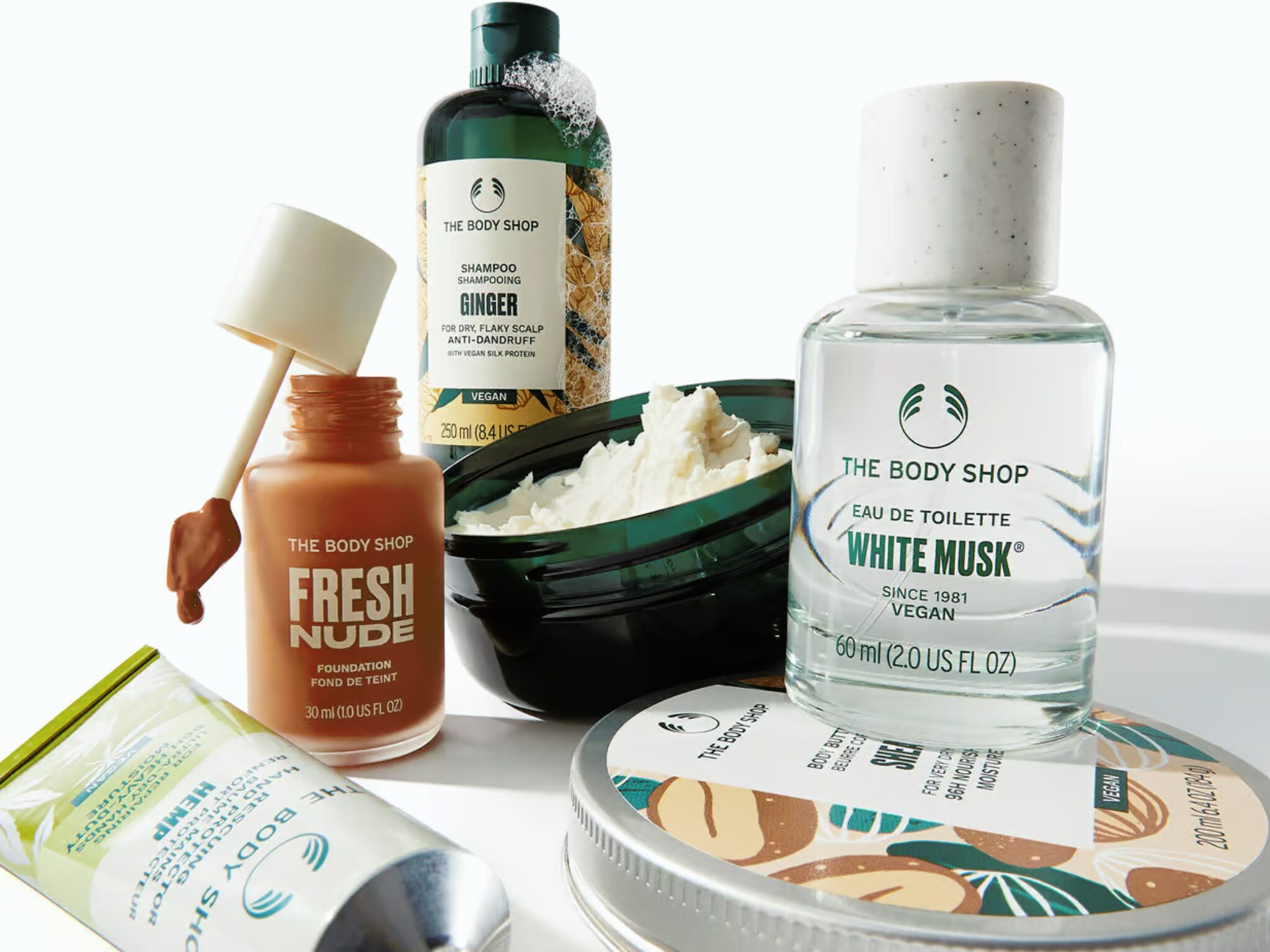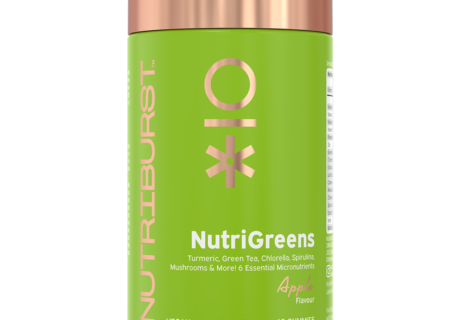7 Mins Read
The Body Shop has announced that its UK and German operations have gone into administration, with its business in other countries also in jeopardy. How did it get here, and what’s next?
A pioneer of cruelty-free beauty and a beloved brand for millions around the world, The Body Shop last week entered administration in the UK and Germany, three months after it changed hands in a deal worth £207M.
The move puts the jobs of more than 2,600 people at risk, and has left its fair trade suppliers in vulnerable countries with over $1M worth of ingredients and stock that may never be paid for. It comes after the brand witnessed disappointing sales over the Christmas period, and it emerged that the cosmetics label had insufficient working capital.
The 48-year-old business is now in jeopardy. Here’s what happened, and what happens next.
The rise and fall of The Body Shop
Founded by human rights and environmental activist Dame Anita Roddick, the Body Shop grew from a small shop in Brighton to a global business with about 3,000 stores in over 70 countries. Famed for its emphasis on ethics, it was the world’s first cosmetics brand to commit to zero animal testing, way back in 1989.
Roddick was a champion of ethical consumerism and was the face of the company as it won over consumers – especially teenagers – for its cruelty-free products, including bath pearls, body butters, fruit soaps, White Musk fragrance, Hemp hand cream, and the famous Dewberry Perfume Oil.
After three decades of family ownership, The Body Shop entered the corporate world after Roddick sold it to French personal care giant L’Oréal for £652M in 2006. This attracted criticism from many of the brand’s consumers, who labelled it as a betrayal of its ethics and identity, given that L’Oréal’s products had been linked to animal testing and the company was part-owned by Nestlé.
In 2017, L’Oréal sold The Body Shop to Brazilian beauty giant Natura for £880M. But by this time, The Body Shop was no longer the be-all and end-all of the ethical beauty world. After the EU had introduced a blanket ban on animal testing in cosmetics in 2013, its brand identity wasn’t as distinguishable as it once was.
Its product portfolio became more dictated by trends, eliminating fan-favourite SKUs and introducing items thought of as untrue to its identity. There was also a case of too many launches, which clouded out the focus and fuelled already existing overconsumption patterns. The company has – like many – been forced to raise prices, but that has diverted many towards cheaper replicas of its products as the cost-of-living crisis bites.
Many of its customers flocked to competitors like Neal’s Yard, Aesop, Bath and Body Works, and Lush. The latter, for instance, is a business that champions animal welfare, sustainability and workers’ rights too, but is, crucially, still independently owned. There was a sense that The Body Shop – a company that had always been ahead of its time – had stopped evolving with time. Winning over newer consumers, especially Gen Zers, became a challenge.
Last year, The Body Shop – which employs over 10,000 people – was sold once again, but this time to a German private investment firm called Aurelius, which hoped to reinvigorate the brand. However, less than three months later, the cosmetics label is now in all sorts of trouble.
Financial woes lead to administration
Reports began surfacing earlier this month that The Body Shop – which transformed its entire portfolio to be vegan-friendly last year – was set to appoint administrators, a move aimed at saving the business from liquidity or collapse.
It came a month after Aurelius announced it was selling off The Body Shop’s loss-making operations in most of mainland Europe and parts of Asia to “an international family office”, which is understood to be Alma24, whose majority shareholder Friedrich Trautwein has close ties with Aurelius. The Body Shop’s Ireland and Japan businesses are part of the deal.
“This further prioritises the Body Shop’s strategically important markets and global head franchise partner relationships, which it will look for opportunities to build,” the company told Retail Week at the time. “The Body Shop will also focus on more effectively reaching customers by strengthening digital platforms, developing new sales channels, and via differentiated retail experiences.”
And last week, the company – which recorded a £71M loss in its latest accounts in 2022, down from a £10M profit – appointed administrators for its home market of the UK, where it has over 200 stores, as well as a head office and a distribution centre. “The Body Shop has faced an extended period of financial challenges under past owners, coinciding with a difficult trading environment for the wider retail sector,” said the administrators.
This was swiftly followed by the company entering administration in Germany, where it has more than 400 employees and 60 stores. Staff in Belgium were told that the operation there would face the same fate soon. “The actions being taken may not be wrong, but it is how it is being done that is breaking people’s hearts,” one source told the Guardian. “People are being told with no notice: ‘You work for an unnamed family company,’ when some of these people have been with the company for years, some 30 years. It is so painful.”
Aurelius has faced criticism for its cut-price takeover of the beauty brand, which valued the company at £670M less than what Nature had paid for it six years ago. The private equity firm is facing allegations of failure to make payments worth £3M to around 20 former employees last month.
Is The Body Shop closing down?
It’s unlikely that The Body Shop will completely disappear, but there will likely be a sea change in the business’s operations. “Administrators will now consider all options to find a way forward for the business and will update creditors and employees in due course,” the company has said, while conforming that it will continue to trade during this period, both in-store and online.
It’s important to note that this doesn’t spell doom for The Body Shop everywhere. While it’s expected to fall into administration in Ireland, Austria and Luxembourg too, its Canada and Australia operations – where it remains successful – are anticipated to remain open.
It’s unclear what this means for The Body Shop in the US, or even in France, Sweden and Spain, where directors haven’t signed documents finalising a transfer of ownership. As the company explained, the administration period “provides the stability, flexibility and security to find the best means of securing the future of The Body Shop and revitalising this iconic British brand”.
While it’s too early to tell how things will pan out, some say there will be a focus on cost reduction – including on property and rents – and building greater online presence. Others expect the brand to survive, but with far fewer stores (numbering 100 in the UK), with Aurelius a likely buyer for a diluted business. Next, the UK’s largest clothing company and parent of Reiss, Victoria’s Secret UK, GAP UK and Cath Kidston (among others), is also thought to be in the running.
One industry expert told the Guardian that The Body Shop wasn’t a brand that could work as a wholesaler. Instead, it would require a chain to ensure efficient communication about ethical sourcing. “If you stick a few products on a shelf in Boots, you would lose the magic,” they said.
It highlights the problem for the cruelty-free beauty pioneer – no one can seem to agree on what to do next. There are hopes that the company can be restructured to appeal to younger shoppers and compete with the likes of Lush, for instance. But there’s a feeling that e-commerce might be the most viable course of action next. For others, there’s a brick-and-mortar charm that is irreplaceable for a company like The Body Shop.
Most agree on one thing though: this is a brand steeped in nostalgia, and they don’t want to see it go. At a time when animal welfare, ethical sourcing, environmental sustainability, and vegan personal care are crucial, it would be against the grain for The Body Shop to say goodbye. Time will tell if it can bounce back.
The post The Body Shop: How the Ethical Beauty Pioneer’s Fortunes Soured, and What Happens Next appeared first on Green Queen.





